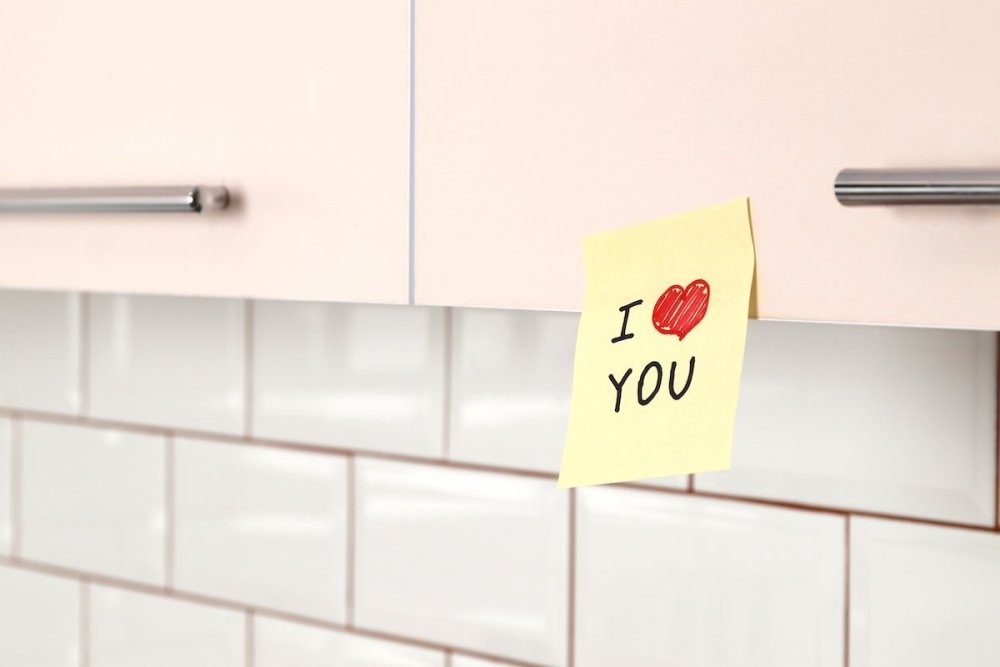Don't always have the words to say you love someone? Then 'pebbling' – a gesture originating from penguins – could work for you. As Dee Marques explains, pebbling is the act of sending loved-ones small tokens of affection to let them know you're thinking of them, often used by people who struggle to verbalise their feelings.
Chances are you’ve come across a meme, video or image that reminded you of someone dear to you, and you couldn’t help but sharing it with them. Likewise, you’ve probably also been the one receiving an Instagram Reel or pic with the caption: “this is so you :-)”.
This seemingly trivial act is known as pebbling, a trend that is making the rounds in social media as a way to show appreciation and build stronger connections through small and thoughtful gestures.
What’s fascinating is that many of us may already be pebbling – or being pebbled – without even realising it, whether we’re doing it online or in the real world. So, what is pebbling exactly, what do penguins have to do with pebbling, and how can you use it to nurture personal relationships and strengthen your bonds with others?
So, what is pebbling exactly?
Pebbling involves offering small gestures to others to show you care for that person. But what do pebbles have to do with it? Well, the expression 'pebbling' comes from a charming practice observed in nature between penguins in Antartica. Here, male gentoo penguins court their potential mates by presenting them with the most perfect pebbles they can find. These function as simple gifts that symbolise their affection and commitment to building a nest together.

Nature and nurture: male gentoo penguins court mates by gifting perfect 'nesting' pebbles
Penguin pebbling also happens between people: think about all the thoughtful acts of kindness that can communicate love and appreciation. Unlike traditional gift-giving – which often involves a lot of planning or considerable expenses – pebbling thrives on simplicity. Whether it’s sending a random “thinking of you” text or making someone a cup of tea, the magic lies in the gesture’s small but heartfelt nature. Ultimately, this ritual is not about material wealth, but about intention and connection.
Pebbling as a love language
Because pebbling is subtle and doesn’t require elaborate gestures or speeches, it’s included within the five neurodivergent love languages, alongside: parallel play/body doubling, info-dumping, support swapping, and deep pressure. For neurodivergent individuals, traditional expressions of affection like overt romantic gestures or spoken declarations of love can feel challenging or uncomfortable.
“Pebbling involves offering small gestures to others to show you care. Unlike traditional gift-giving – which often involves a lot of planning or considerable expenses – pebbling thrives on simplicity.”
The beauty of penguin pebbling is that it doesn’t require fancy words or actions. Small but meaningful gestures can also speak volumes, and are a much more accessible way of communicating for people from neurodivergent communities. For many, pebbling bridges the gap between wanting to show love and finding a comfortable way of expressing it.
Pebbling in friendships and other personal relationships
In romantic relationships, pebbling can be a game-changer. During the early stages of dating or courting, small gestures are a way of showing attentiveness and of building intimacy. Even in long-term relationships, penguin pebbling helps keep the connection alive by reaffirming with your partner that they’re often in your thoughts.
MORE LIKE THIS:
- Random Acts of Kindness: 22 Acts to Spread Happiness
- Why Can't I Make Friends: 7 Self-Limiting Patterns
- The Power of Kindness: The Ripple Effects of Being Nice
Similarly, in platonic friendships, small and thoughtful acts can strengthen bonds and show your buddies that they're valued. For instance, sharing a Spotify playlist that reminds you of your best mate or surprising them with their favourite cake on a tough day can go a long way in showing that you care, while also building a history of shared memories.
Digital dating: Sending memes, playlists or Reels is a form of pebbling
Furthermore, giving and receiving “pebbles” can also strengthen parent-child relationships, especially if the kids are digital natives. Children might pebble their parents by drawing a picture or sharing a silly video that made them laugh, and parents can pebble their kids by putting a favourite treat into their lunchbox or sending a text of encouragement before an exam.
Five benefits of pebbling
Pebbling might consist of small gestures, but it has a powerful impact. Here are some of the key benefits of giving symbolic pebbles:
1. Strengthens relationships
Thoughtful gestures build trust and connection. When you pebble someone, you’re sending a clear message: “I’m thinking about you”. These acts of care create a sense of security and warmth in relationships, which reinforce emotional bonds and make relationships stronger. And, as some studies have found, the positive impact of acts of kindness can last up to three months.
2. Boosts feel-good hormones
Acts of kindness like those involved in pebbling trigger the release of feel-good hormones like oxytocin, dopamine, and serotonin. This creates the so-called “Helper’s High” effect, where the brain rewards kind behaviour with a rush of happiness chemicals, which – according to some studies – can have a similar effect to a mild morphine high.
3. Promotes emotional well-being
Feeling cared for and appreciated has a profound effect on emotional health. For the receiver, pebbling can reduce feelings of loneliness, replacing them with joy and gratitude.
“The expression 'pebbling' comes from a charming practice observed in nature between penguins. Male gentoo penguins court their mates by presenting them with the most perfect pebbles they can find.”
Some studies report that more than 50% of people receiving a token of kindness say they experience increased happiness and gratefulness.
4. Encourages mindfulness
Pebbling requires you to stop and think about the important people in your life, what makes them happy, and what might brighten their day. Taking time to consider other people’s needs and wishes can help you become more mindful of your connections, making it easier to stay present and appreciative.

Sticky and sweet: Post-it pebbling is a simple way to show affection
5. Accessibility
Unlike grand gestures that require significant time, money, or planning, penguin pebbling is simple and inclusive. Because it’s a low-cost way of expressing love and kindness, it's accessible to people of all ages and backgrounds. Anyone can pebble, and that’s the beauty of it.
Pebbling: Ideas and inspiration
Most of us are already pebbling or being pebbled in the digital world. But if you want to get more actively involved in this relationship ritual inspired by penguins, here are some ideas to get you going:
Digital pebbling
- Share a funny meme or TikTok video that made you think of someone.
- Send a “just checking in” message to a friend you haven’t spoken to in a while.
- Create a digital photo album of your favourite memories with a friend.
- Send a cute emoji for no reason (yes, it can be as simple as that!).
Real-world pebbling
- Pick up your coworker’s favourite snack or drink “just because”.
- Leave a handwritten note on your partner’s bathroom mirror, fridge, or pillow.
- Bring an actual pebble with some special feature from a meaningful location.
- Find a pretty tree leaf and give it as a keepsake.
For parents and kids
- Prepare a surprise breakfast with your child’s favourite foods.
- Kids can make a DIY “I love you” card or bracelet for their parents.
- Have a “pebble jar” where family members leave notes of gratitude for one another.
-
Create a family Messenger group and be active sharing and responding to messages and images.
Takeaway: What is Pebbling?
What started as a charming behaviour in penguins has evolved into a powerful practice for building and maintaining meaningful connections. Whether it’s a romantic partner, a close friend, or a family member, the small and thoughtful acts of kindness involved in pebbling remind us that expressions of love and care don’t have to be fancy to be meaningful.
So, next time you a family member or friend enters your thoughts, why not pebble them? A simple action can brighten their day, make your relationship more authentic, and spread positivity in ways you never imagined. •
Images: shutterstock/evenfh, shutterstock/shurkin_son
happiness.com | The fine art of being: learn, practise, share
Are you a happiness.com member yet? Sign up free to:
■ enjoy our happiness magazine with practical life tips
■ share and support others in our happiness forum
Written by Dee Marques
 A social sciences graduate with a keen interest in languages, communication, and personal development strategies. Dee loves exercising, being out in nature, and discovering warm and sunny places where she can escape the winter.
A social sciences graduate with a keen interest in languages, communication, and personal development strategies. Dee loves exercising, being out in nature, and discovering warm and sunny places where she can escape the winter.


Join the conversation
You are posting as a guest. If you have an account, sign in now to post with your account.
There are no comments to display.